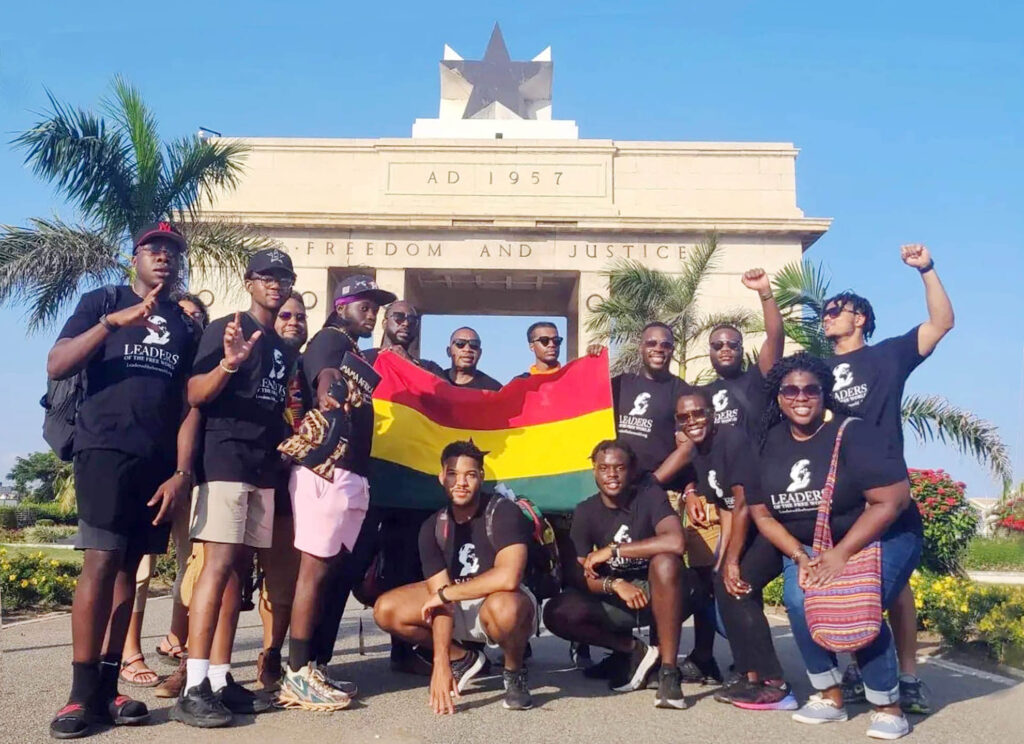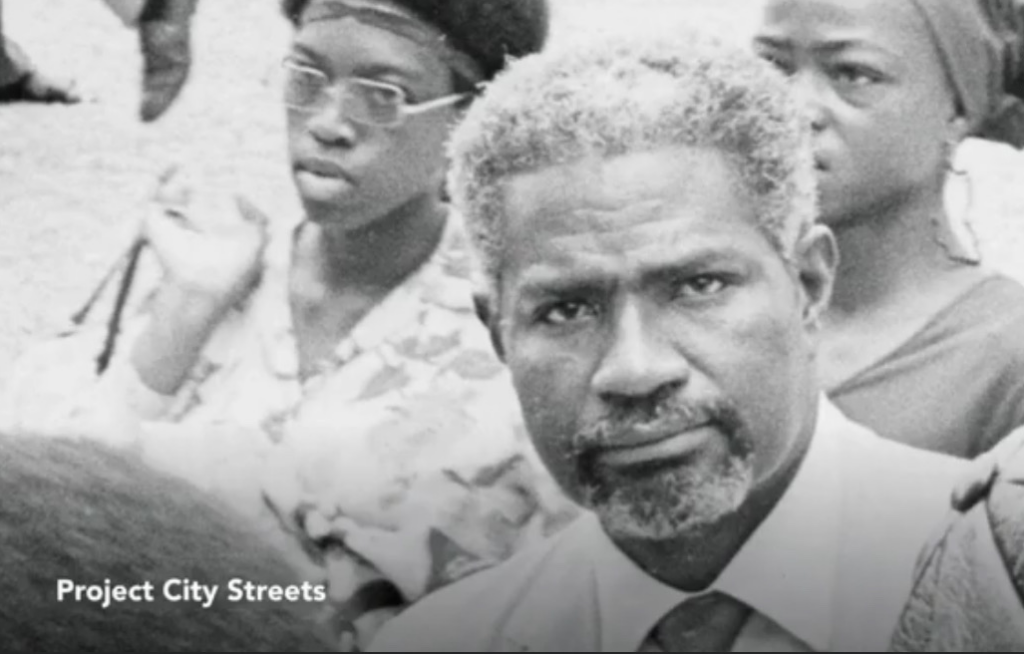IIE is proud to celebrate Black History Month and pay tribute to the contributions and leadership of Black and people of African descent to IIE, the field of international education, and the world. What began in 1926 as a week-long effort to expose school children to Black history has blossomed into month-long celebrations around the world. Throughout major points in history, IIE has implemented cutting-edge educational programs and resources that create international education opportunities. To commemorate Black History Month this year, we are taking a look at IIE’s programs through the years.
Shortly after IIE’s fiftieth anniversary in 1970, Project City Streets was created to develop young people’s global perspectives. The program brought international students to cities in the United States for internships, and it provided overseas study and observation opportunities for U.S. students from underrepresented minority groups. Project City Streets also provided funding for black filmmakers in the United States to gain experience on a film called Kongi’s Harvest, filmed in Nigeria with the renowned African American actor and civil rights advocate Ossie Davis (pictured at top). Given the universality of urban issues across the world, Project City Streets introduced important educational exchange programs to help meet the needs of the cities and their inhabitants and was one of the first programs to enable young black students to study abroad.
In 1978 IIE developed the South Africa Education Program (SAEP) to help prepare black South Africans for leadership in a post-apartheid future. The program utilized knowledge and expertise from South Africa in a collaborative way. A committee chaired by Bishop Desmond Tutu and South Africa’s Black community selected students for the program. Between 1979 and 1992, SAEP provided scholarships to more than 1,600 Black South Africans who later helped lead their country in the post-apartheid era. To the right, SAEP participant Dr. Caroline Ntoane earned her master’s in public health from Columbia University, returning to South Africa to become the first Director of Health for the North West Province.

IIE has had the privilege of administering the Carnegie African Diaspora Fellowship since its inception in 2013. Designed to avert the so-called “brain drain” and to build higher education capacity on the continent, this scholar fellowship model enables institutions in Ghana, Kenya, Nigeria, South Africa, Tanzania, and Uganda to host U.S.- and Canada-based African scholars so they can work on research collaborations, graduate student teaching/mentoring, and curriculum co-development projects in Africa. It has awarded 665 fellowships at 192 universities across 10 African countries.
In 2014, IIE launched the Generation Study Abroad (GSA) initiative to mobilize resources and commitments with the goal of doubling and diversifying the number of U.S. students studying abroad by the end of the decade. The campaign grew to include over 800 GSA Commitment Partners who awarded more than 39,000 scholarships to students, with a focus on Black and African American student populations. Morgan State University, an HBCU in Maryland, more than doubled the number of students who studied abroad. While 28 students studied abroad in the 2011/12 academic year, a whopping 158 students traveled for their education in 2018/19. Generation Study Abroad’s legacy can be seen in present-day programs that support study abroad at HBCUs and other minority-serving institutions. During the five-year initiative, more than 100 colleges and universities achieved their goals to increase and diversify study abroad, and $1 million was disbursed through IIE-administered scholarships and grants.
In a continuation of its programming to support underrepresented student communities such as Black students, IIE launched the Center for International Opportunities (CIO) in 2023. Among other programming, the CIO offers the American Passport Project, which aims to remove the financial barrier of obtaining a passport and promote opportunities to study abroad. The Project awards institutional grants for underrepresented U.S. college students to obtain passports, a critical—and costly— first step toward studying abroad. The goal: to grant 10,000 Pell-eligible U.S. students their passports by the end of the decade. To date, the Center has provided funding to 127 U.S. colleges and universities—including HBCUs and community colleges—reaching an estimated 3,175 U.S. college students. Last fall, the CIO announced a partnership with Leaders of the Free World, a U.S.-based nonprofit specializing in global leadership development for Black male students in higher education, to enhance existing and develop new programming aimed at increasing study-abroad participation among Black men in college or university. The partnership marks a re-invigorated effort to strategically increase Black Americans’ opportunities to study abroad and international education.

